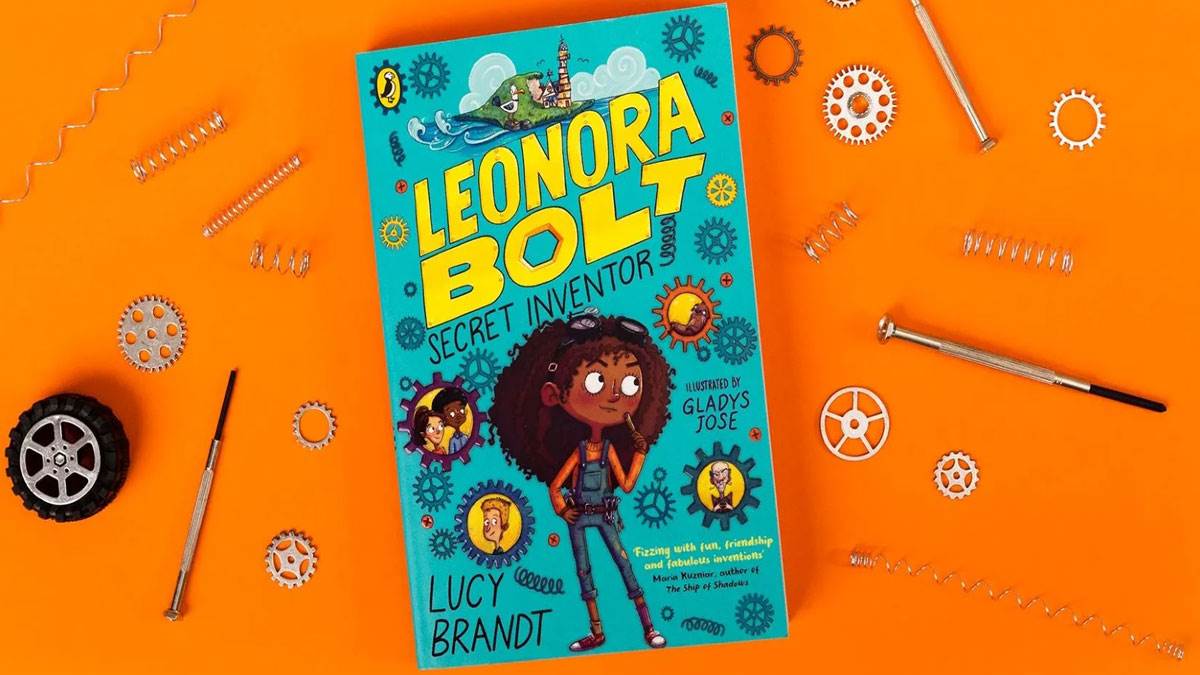Tips on how to get your child into STEM subjects and improve their maths and tech skills
Published on: 11 July 2022 Author: Lucy Brandt
Lucy Brandt, author of the Leonora Bolt: Secret Inventor Series (illustrated by Gladys Jose), has some practical ideas on how to encourage a child's creativity when it comes to exploring science, technology, engineering and mathematics.

I’d like to kick off by confessing that I’m not a scientist. I’ve never calculated the density of a neutron star or the studied the digestive workings of a weasel. But I have always been fascinated by scientific ideas and innovation.
Early love of how things work
It all started with my dad. He was an engineer and amateur inventor who was forever "fixing" various household appliances in new and interesting ways. I’d often find him in the garage up to his elbows in engine oil, cheerfully dismembering a Vauxhall Astra.
This love of experimental engineering clearly influenced me, as it forms the basis of my Leonora Bolt: Secret Inventor series. And although I studied English at university, I’ve used my writing skills for various science and tech organisations over the years.
During my time in the tech industry, I saw first-hand the dearth of female employees, and that’s why Leonora was born. I wanted to encourage more girls to give science and tech subjects a go. Leonora could be my STEM alter ego if I’d put down the obscure medieval poetry and picked up a toolbelt instead.
So, how do we encourage more kids into science and tech?
Silliness with science
I believe that humour is the best possible way to engage children in any subject. That’s why I’ve tried to make my Leonora Bolt books as silly as possible alongside the scientific themes.
Leonora must use all her practical skills to build gadgets and solve problems to defeat her dastardly uncle. She designs hair-raising hot air balloons and slapdash submarines, using her amazing brain to get herself out of scrapes. My stories also include a hefty dose of science fiction to encourage kids, not to limit their imaginations.
If you’re looking to nurture scientific inquiry in your kids, there are lots of funny and fascinating books out there. For the younger age group, Rosie Revere, Engineer by Andrea Beaty or The Most Magnificent Thing by Ashley Spires, are a good place to start.
My children really enjoyed the Horrible Science books by Nick Arnold, which cover everything from momentum to microbes in glorious and often gory detail. Also, Adam Kay’s recent books (Kay’s Anatomy and Kay’s Marvellous Medicine) are hilarious for your budding doctors and nurses.
"No minimum age for innovation"
Aside from humour, pointing out role models is also important. When kids learn about trailblazers like Katherine Johnson, Jane Goodall and Mae Jemison, it helps them see themselves in those careers. If you have friends or family with STEM professions, it’s a great idea to get them to chat with your children about their passion.
In my school talks, I like to give numerous examples of things that children have invented such as trampolines, earmuffs and even snowmobiles. I want to show that there’s no minimum age for innovation.
At home, there are plenty of everyday activities that introduce STEM skills by stealth. Baking is a brilliant one, teaching chemistry and precise measurement. My character Mildred Dribble loves food science (although perhaps she’s not the best role model, given the terrifying food she produces).
Shopping is a great way to teach arithmetic and household budgeting. Playing with Lego and building blocks can help kids learn about design and basic physics. And with so many children loving computer games, there is an opportunity to spark an interest in coding.
There’s real fun to be had exploring easy science experiments at home, from creating mini volcanoes by mixing vinegar and baking soda, to making parachutes. The CBBC and BBC Bitesize websites are a great free resource for these. You can also visit local museums, zoos or aquariums. Or just get out and about in nature and see if your kids can name the types of trees or insects that they find on a walk. I was lucky enough to grow up in the countryside and I’ve been passionate about the great outdoors and conservation ever since.
Finally, I think it’s important to instil in kids a spirit of inquiry. Encourage them to never stop asking questions about the world around them. Also, explain that failure isn’t just okay, it’s totally essential in STEM fields (and the rest of life, for that matter). Only by failing can we build better models, refine theories and make incredible new discoveries. Kids should be urged to never limit their dreams and creativity.
As Leonora Bolt would put it, nothing is impossible if you use your imagination.
Topics: Science, Features, Teacher tips
Waterstones Children's Laureate: Frank Cottrell-Boyce
Frank Cottrell-Boyce is the Waterstones Children's Laureate for 2024-26.
The role of Children's Laureate is awarded once every two years to an eminent writer or illustrator of children's books to celebrate outstanding achievement in their field. Find out what Frank's been up to.





